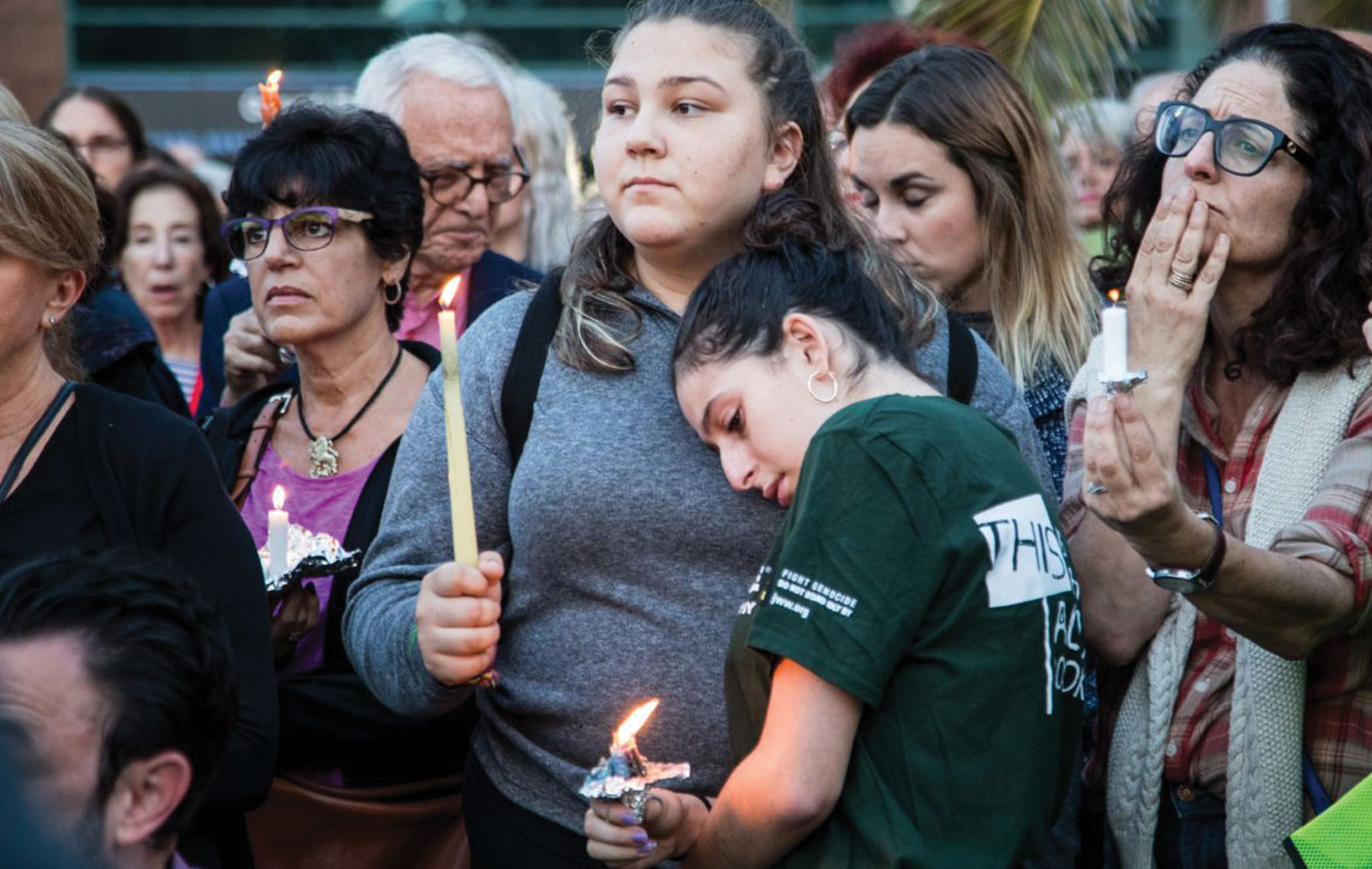
As I write this, I have no idea who won what in the midterms. But I do know that much of the commentary since the synagogue shooting in Pittsburgh has focused on a rise in anti-Semitism in America. “It’s Trump’s fault” has been a popular meme on the left; while “Don’t forget Jew-haters on the left” has been the obligatory retort from the right.
Independent of where it comes from, though, the central claim is that things are getting worse for the Jews.
Before Pittsburgh, graffiti of a swastika on a synagogue wall was cause for serious alarm in the Jewish world. Then, suddenly, Pittsburgh happened. Instead of a spray can, a Jew-hater picked up an AR-15 and murdered 11 Jews.
From a swastika on a wall to the murder of 11 Shabbat worshippers is a communal earthquake.
To give you a sense of the magnitude, the last synagogue shooting in America happened in Detroit in 1966, and it was by a deranged congregant who shot the rabbi. In other words, Pittsburgh is the first synagogue shooting by an anti-Semite in U.S. history — and by far the deadliest.
“Let’s not overlook the enormous outpouring of love and concern for the Jews that has come from across the nation.”
In the face of such horror, it’s hard to focus on such things as how amazing America has been for the Jews; and how we have thrived in this oasis of freedom after feeling the sting of persecution for centuries.
Indeed, the golden age of American Jewry kicked off in the 1950s. In Jonathan Sarna’s “American Judaism: A History,” he quotes Anti-Defamation League director Benjamin R. Epstein, who described the two decades following World War II as a “period of tremendous progress” for the Jews.
During those years, Epstein recalled, American Jews “achieved a greater degree of economic and political security, and a broader social acceptance than had ever been known by any Jewish community since the [ancient] Dispersion.”
It’d be foolish to say that anti-Semitism went away. It never did; it never will, in America or elsewhere. As Sarna writes: “Anti-Semitism by no means disappeared, of course, any more than nativism, anti-Catholicism, or racism did.”
But it’s fair to say that America did not make it easy or popular to be an anti-Semite.
Anti-Semites “found themselves placed on the defensive as Judaism’s status rose,” Sarna writes. “Forced to justify their anti-Jewish prejudice in the face of America’s increasingly tolerant norms, they beat a hasty retreat.”
This broad acceptance of the Jews is what most of us grew up with and got used to. Our contributions to American society have been so pervasive and substantial that some commentators speak of Judaism and Americanism in the same breath. We have embraced American freedom and opportunity with a full heart, and, in deep gratitude, have given back all we could.
It’s not a coincidence that according to a 2017 Pew survey, more Americans — 67 percent— feel warmly toward Jews than toward any other faith group.
So, when we get spooked by a disaster like Pittsburgh, it’s not just because we’re terrified but because we recognize its abnormality. Something about Pittsburgh felt so un-American, so foreign.
‘When we get spooked by a disaster like Pittsburgh, it’s not just because we’re terrified but because we recognize its abnormality. Something about Pittsburgh felt so un-American, so foreign.”
It’s easy to forget all this while our ears are ringing with cries of an alarming rise in anti-Semitism and while our community argues over whether it’s worse from the left or the right.
Anti-Semitism will never go away; it’s the nature of the disease. The rise of the Internet and proliferation of social media has further magnified swastika sightings and anti-Semitic incidents from both the left and the right, including on college campuses.
But as we stay vigilant against these troublesome signs, let’s not overlook the enormous outpouring of love and concern for the Jews that has come from across the nation. It’s hard to imagine a country, outside of Israel, where a mainstream newspaper would actually feature large Hebrew letters on its front page — as the Pittsburgh Post-Gazette did last week when it honored the victims of Tree of Life by putting the beginning of the Mourner’s Kaddish on its front page.
Those Hebrew letters, which have gone viral, are a quirky reminder of how fully integrated we have become in American society; and how anti-Semites will never win popularity contests in this country.
For American Jewry, America has become like family. We give a lot and expect a lot. We’re no longer on foreign land. This is our country.
Pittsburgh has been a shock to our system not because America is bad for the Jews — but precisely because it has been so good.






















 More news and opinions than at a Shabbat dinner, right in your inbox.
More news and opinions than at a Shabbat dinner, right in your inbox.